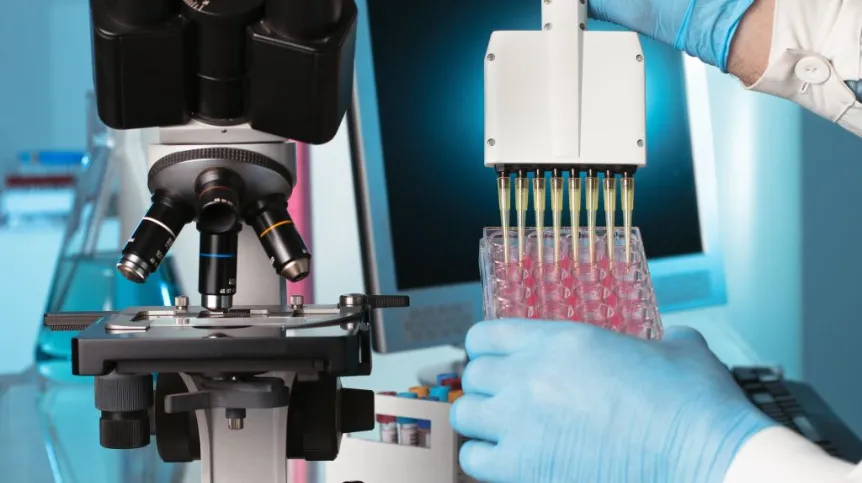
A new study confirms that the body's resistance to COVID-19 may be genetically determined.
Publishing their results in Nature Immunology, the international research team from the COVID Human Genetic Effort (HGE) indicate that COVID-19 has an extremely diverse course: from asymptomatic to life-threatening.
In addition, some people may be resistant to the disease. Genetic factors can affect the infection itself and its course.
Dr. Elżbieta Kaja from Poznań-based scientific start-up MNM Diagnostics which provided genomic data for analysis, said the article presents examples of genetically conditioned susceptibility to severe tuberculosis and COVID-19, as well as innate immunity to certain viral infections.
The authors also present known genetic variants, which are referred to as protective, because their presence means a lower risk of infection in a person.
Dr. Kaja said: “For example, a variant that determines sickle cell anaemia protects against malaria, a variant of HLA (major histocompatibility complex) alleviates the course of HIV-1 infection, and variants in IFNL3-4 genes protect against HCV infection.”
She added that although the variants do not completely protect against infection with a given disease, they do protect against its severe course.
The HGE consortium has so far collected data from 400 people who have not developed the disease despite their long-term exposure to SARS-CoV-2, for example people living with or caring for COVID-19 patients.
The people who had negative results of the PCR test and the serological test performed four weeks after the contact were qualified for the study.
People qualified for the HGE study also showed no response from T-cells. More than half of these samples come from MNM Diagnostics's recruitment for the project 'Resistant to COVID in Poland'.
So far, scientists have identified several genes that may affect the development of genetic resistance to COVID-19.
Kaja said: “They include genes from the ABO region, ACE2 receptor, TMPRSS2, TMEM41B, which are worth analysing for innate variants of resistance to COVID-19.”
She added that the goal of the consortium's research is to carry out genome-wide sequencing on qualified people, and then to perform an in-depth analysis of patients' genomes in search of variants that may have a protective effect, alleviating the course of COVID-19.
Further immunological and laboratory research will eventually uncover the molecular mechanisms behind such resistance. (PAP)
Author: Wiktor Dziarmaga
wdz/ joz/ kap/
tr. RL













